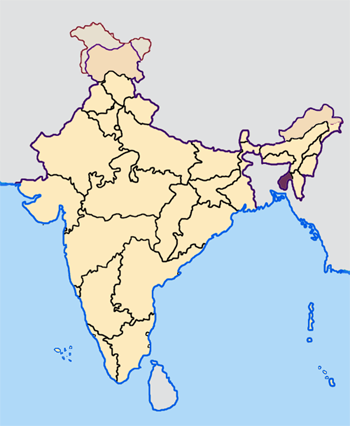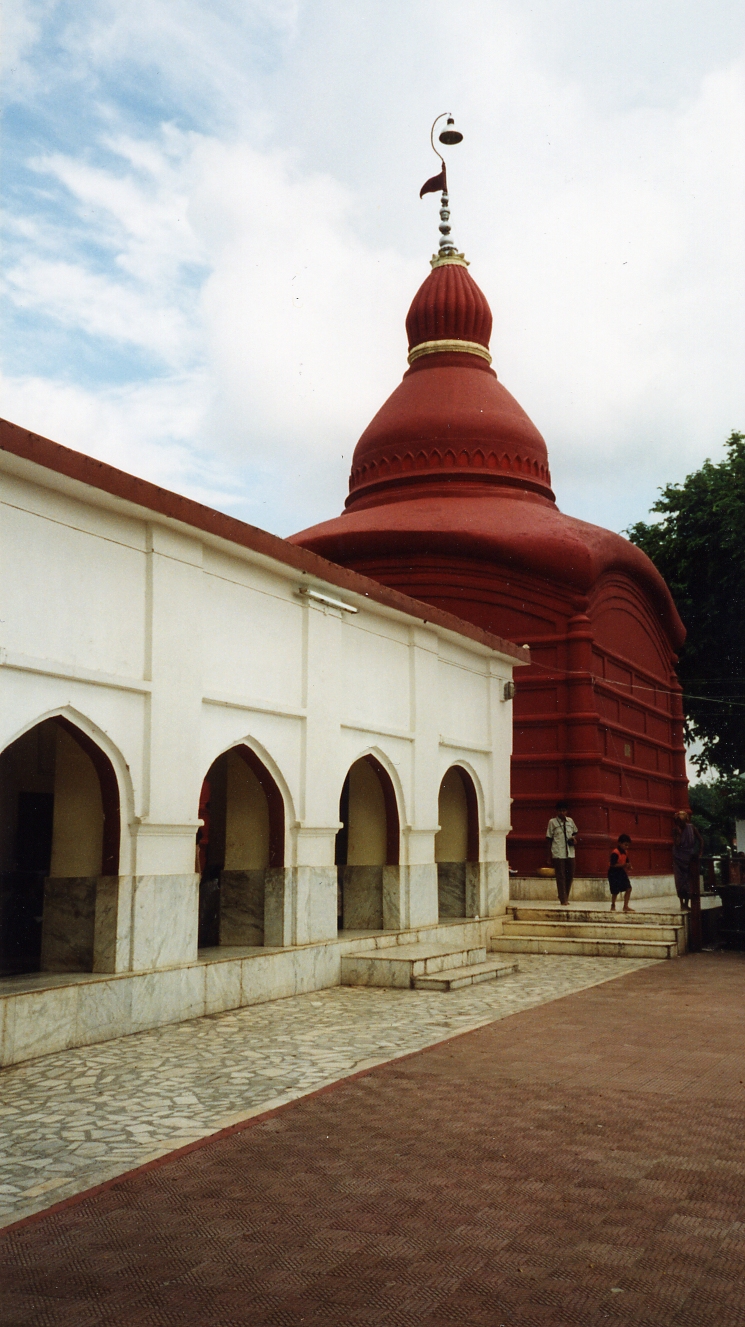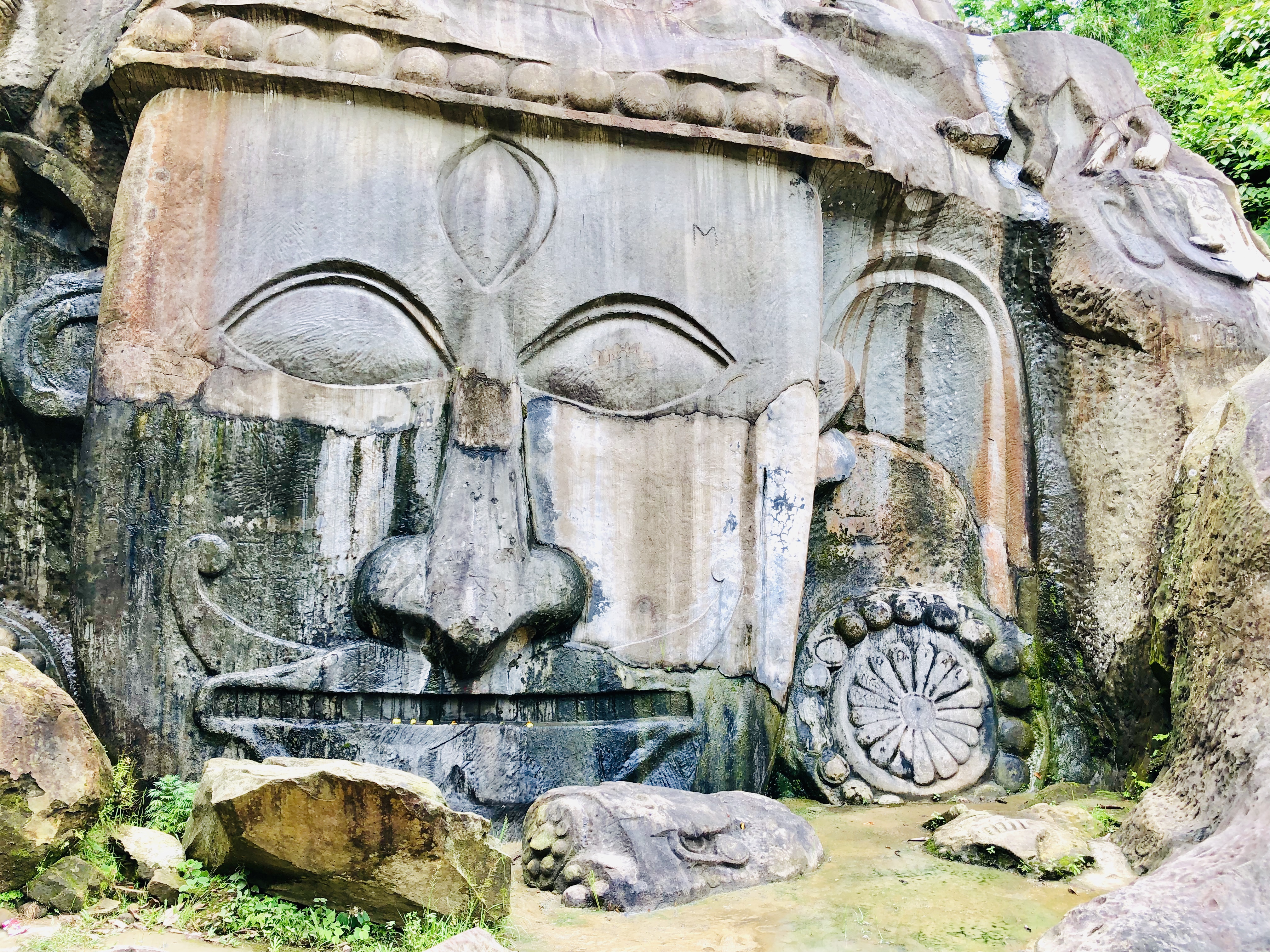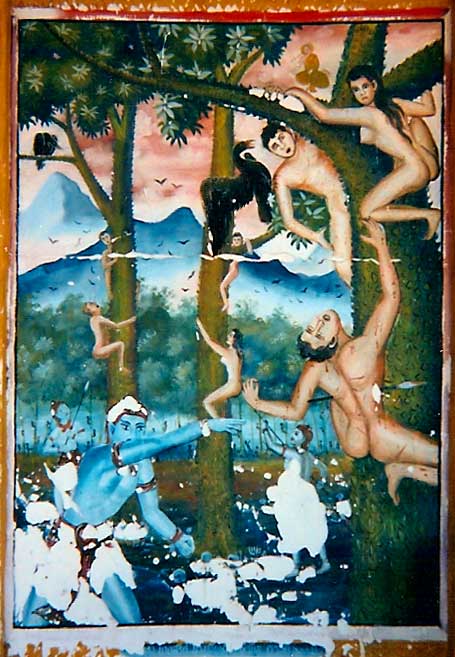|
1967 Tripura Legislative Assembly Election
Until 1972, Tripura was a Union Territory. The 1967 Tripura Legislative Assembly election took place on 21 February 1967 in a single phase to elect the Members of the Legislative Assembly (MLA) from each of the 30 Assembly Constituencies (ACs) in Tripura, India. Indian National Congress led by Sachindra Lal Singh, won 27 seats and formed a Government in Tripura union territory. Highlights Election to the Tripura Legislative Assembly were held on February 21, 1967. The election were held in a single phase for all the 30 assembly constituencies. Participating Political Parties Partytype Abbreviation Party National Parties 1BJS Bharatiya Jan Sangh 2CPI Communist Party of India 3CPM Communist Party of India (Marxist) 4INC Indian National Congress 5SSP Sanghata Socialist Party Independents 6INDIndependent No. of Constituencies Electors Performance of Women Candidates Result Constituency wise Winners AC No Assembly Const ... [...More Info...] [...Related Items...] OR: [Wikipedia] [Google] [Baidu] |
Sachindra Lal Singh
Sachindra Lal Singh (7 August 1907 – 9 December 2000) was a leader of the Indian National Congress and the first Chief Minister of Tripura state in northeastern India from 1 July 1963 to 1 November 1971. In 1977, he became the leader of the newly formed Congress for Democracy party. He was elected to the sixth Lok Sabha from Tripura West constituency as a member of the congress for Democracy.Sachindralal Singh, the first Chief Minister of Tripura, was a highly popular leader of Tripura. He was fondly called “Sachin-da” and was highly admired for his simplicity and amiable nature. His father, Shri Deen Dayal Singh who hailed from Kashi (Varanasi), served major role in the military establishment of the Kingdom of Tripura and settled at Agartala permanently. Sachin-da is a very brilliant student and passed his academic term from victoria College (British India). Sachin-da started his political activities from his school days as a member of “Bhatri Sangh”, an organisation ... [...More Info...] [...Related Items...] OR: [Wikipedia] [Google] [Baidu] |
Chief Minister Of Tripura
The Chief Minister of Tripura, an Indian state, is the head of the Government of Tripura. As per the Constitution of India, the Governor of Tripura is the state's ''de jure'' head, but ''de facto'' executive authority rests with the chief minister. Following elections to the Tripura Legislative Assembly, the governor usually invites the party (or coalition) with a majority of seats to form the government. The governor appoints the chief minister, whose council of ministers are collectively responsible to the assembly. Given that he has the confidence of the assembly, the chief minister's term is for five years and is subject to no term limits. Since 1963, Tripura has had eleven chief ministers. The first was Sachindra Lal Singh of the Indian National Congress. Manik Sarkar of the Communist Party of India (Marxist) served as Chief Minister of Tripura from 1998 to 2018; his reign was the longest in the state's history. The incumbent is Manik Saha , after Biplab Kumar Deb resigne ... [...More Info...] [...Related Items...] OR: [Wikipedia] [Google] [Baidu] |
Tripura In India
Tripura (, Bengali: ) is a state in Northeast India. The third-smallest state in the country, it covers ; and the seventh-least populous state with a population of 36.71 lakh ( 3.67 million). It is bordered by Assam and Mizoram to the east and by Bangladesh to the north, south and west. Tripura is divided into 8 districts and 23 sub-divisions, where Agartala is the capital and the largest city in the state. Tripura has 19 different tribal communities with a majority of the Bengali population. Bengali, English and Kokborok are the state's official languages. The area of modern Tripura — ruled for several centuries by the Manikya Dynasty — was part of the Tripuri Kingdom (also known as Hill Tippera). It became a princely state under the British Raj during its tenure, and acceded to independent India in 1947. It merged with India in 1949 and was designated as a 'Part C State' ( union territory). It became a full-fledged state of India in 1972. Tripura lies in a geographica ... [...More Info...] [...Related Items...] OR: [Wikipedia] [Google] [Baidu] |
Tripura Legislative Assembly
The Tripura Legislative Assembly or Tripura Vidhan Sabha is the unicameral legislature of the Indian state of Tripura, with 60 Members of the Legislative Assembly. The present Assembly is located in Gurkhabasti. Ujjayanta Palace in Agartala served as the previous meeting place. The tenure of the Assembly is five years unless sooner dissolved. The present Assembly is the 12th Legislative Assembly, where Ratan Chakraborty is the current speaker of the House. History On 1 November 1956, Tripura became a Union territory, and an Advisory Committee was formed to advise the Chief commissioner. On 15 August 1957, a Territorial Council was formed with 30 elected members and two members nominated by the Government of India The Government of India ( ISO: ; often abbreviated as GoI), known as the Union Government or Central Government but often simply as the Centre, is the national government of the Republic of India, a federal democracy located in South Asia, .... Previous Ass ... [...More Info...] [...Related Items...] OR: [Wikipedia] [Google] [Baidu] |
Indian National Congress
The Indian National Congress (INC), colloquially the Congress Party but often simply the Congress, is a political party in India with widespread roots. Founded in 1885, it was the first modern nationalist movement to emerge in the British Empire in Asia and Africa. From the late 19th century, and especially after 1920, under the leadership of Mahatma Gandhi, the Congress became the principal leader of the Indian independence movement. The Congress led India to independence from the United Kingdom, and significantly influenced other anti-colonial nationalist movements in the British Empire. Congress is one of the two major political parties in India, along with its main rival the Bharatiya Janata Party. It is a " big tent" party whose platform is generally considered to lie in the centre to of Indian politics. After Indian independence in 1947, Congress emerged as a catch-all and secular party, dominating Indian politics for the next 20 years. The party's first pr ... [...More Info...] [...Related Items...] OR: [Wikipedia] [Google] [Baidu] |
Tripura
Tripura (, Bengali: ) is a state in Northeast India. The third-smallest state in the country, it covers ; and the seventh-least populous state with a population of 36.71 lakh ( 3.67 million). It is bordered by Assam and Mizoram to the east and by Bangladesh to the north, south and west. Tripura is divided into 8 districts and 23 sub-divisions, where Agartala is the capital and the largest city in the state. Tripura has 19 different tribal communities with a majority of the Bengali population. Bengali, English and Kokborok are the state's official languages. The area of modern Tripura — ruled for several centuries by the Manikya Dynasty — was part of the Tripuri Kingdom (also known as Hill Tippera). It became a princely state under the British Raj during its tenure, and acceded to independent India in 1947. It merged with India in 1949 and was designated as a 'Part C State' ( union territory). It became a full-fledged state of India in 1972. Tripura lies in a g ... [...More Info...] [...Related Items...] OR: [Wikipedia] [Google] [Baidu] |
Bharatiya Jana Sangh
The Bharatiya Jana Sangh ( BJS or JS, short name: Jan Sangh, full name: Akhil Bharatiya Jana Sangh; ) (ISO 15919: '' Akhila Bhāratīya Jana Saṅgha '' ) was an Indian right wing political party that existed from 1951 to 1977 and was the political arm of Rashtriya Swayamsevak Sangh (RSS), a Hindu nationalist volunteer organisation. In 1977, it merged with several other left, centre and right parties opposed to the Indian National Congress and formed the Janata Party. In 1980, Jana Sangh faction broke away from Janata Party over the issue of dual membership (of the political Janata Party and the social organization RSS), and formed the Bharatiya Janata Party. Origins Many members of the right-wing Hindu nationalist Rashtriya Swayamsevak Sangh (RSS) began to contemplate the formation of a political party to continue their work, begun in the days of the British Raj, and take their ideology further. Around the same time, Syama Prasad Mukherjee left the Hindu Mahasabha p ... [...More Info...] [...Related Items...] OR: [Wikipedia] [Google] [Baidu] |
Communist Party Of India
Communist Party of India (CPI) is the oldest Marxist–Leninist communist party in India and one of the nine national parties in the country. The CPI was founded in modern-day Kanpur (formerly known as Cawnpore) on 26 December 1925. History Formation The Communist Party of India was formed on 26 December 1925 at the first Party Conference in Kanpur, which was then known as ''Cawnpore''. Its founders included M. N. Roy, his wife Evelyn Trent, Abani Mukherji, and M. P. T. Acharya. S.V. Ghate was the first General Secretary of CPI. There were many communist groups formed by Indians with the help of foreigners in different parts of the world, Tashkent group of Contacts were made with Anushilan and Jugantar the groups in Bengal, and small communist groups were formed in Bombay (led by S.A. Dange), Madras (led by Singaravelu Chettiar), United Provinces (led by Shaukat Usmani), Punjab, Sindh (led by Ghulam Hussain) and Bengal (led by Muzaffar Ahmed). Involvemen ... [...More Info...] [...Related Items...] OR: [Wikipedia] [Google] [Baidu] |
Communist Party Of India (Marxist)
The Communist Party of India (Marxist) (abbreviated as CPI(M)/CPIM/CPM) is a Marxist–Leninist communist political party in India. It is the largest communist party of India in terms of membership and electoral seats and one of the national parties of India. The party emerged from a split in the Communist Party of India (CPI) on 7 November 1964. CPI(M) is a part of ruling alliances in three states — the Left Democratic Front in Kerala, Mahagathbandhan in Bihar, and the Secular Progressive Alliance in Tamil Nadu. CPIM has representation in the legislative assemblies of 8 states. The All-India Party Congress is the supreme authority of the Communist Party of India (Marxist). However, during the time between two party congresses, the Central Committee is the highest decision-making body. The Central Committee shall elect from among its members a Polit Bureau including the General Secretary. The Polit Bureau carries on the work of the Central Committee between its ... [...More Info...] [...Related Items...] OR: [Wikipedia] [Google] [Baidu] |
Sanghata Socialist Party
Naraka ( sa, नरक; pi, 𑀦𑀺𑀭𑀬 Niraya) is a term in Buddhist cosmology usually referred to in English as " hell" (or "hell realm") or "purgatory". The Narakas of Buddhism are closely related to ''Diyu'', the hell in Chinese mythology. A Naraka differs from the hell of Christianity in two respects: firstly, beings are not sent to Naraka as the result of a divine judgment or punishment; and secondly, the length of a being's stay in a Naraka is not eternal, though it is usually incomprehensibly long, from hundreds of millions to sextillions (1021) of years. A being is born into a Naraka as a direct result of its accumulated actions (karma) and resides there for a finite period of time until that karma has achieved its full result. After its karma is used up, it will be reborn in one of the higher worlds as the result of karma that had not yet ripened. In the Devaduta Sutta, the 130th discourse of Majjhima Nikaya, the Buddha teaches about hell in vivid detail. ... [...More Info...] [...Related Items...] OR: [Wikipedia] [Google] [Baidu] |
Independent (politician)
An independent or non-partisan politician is a politician not affiliated with any political party or bureaucratic association. There are numerous reasons why someone may stand for office as an independent. Some politicians have political views that do not align with the platforms of any political party, and therefore choose not to affiliate with them. Some independent politicians may be associated with a party, perhaps as former members of it, or else have views that align with it, but choose not to stand in its name, or are unable to do so because the party in question has selected another candidate. Others may belong to or support a political party at the national level but believe they should not formally represent it (and thus be subject to its policies) at another level. In running for public office, independents sometimes choose to form a party or alliance with other independents, and may formally register their party or alliance. Even where the word "independent" is used, s ... [...More Info...] [...Related Items...] OR: [Wikipedia] [Google] [Baidu] |
State Assembly Elections In Tripura
State may refer to: Arts, entertainment, and media Literature * '' State Magazine'', a monthly magazine published by the U.S. Department of State * ''The State'' (newspaper), a daily newspaper in Columbia, South Carolina, United States * ''Our State'', a monthly magazine published in North Carolina and formerly called ''The State'' * The State (Larry Niven), a fictional future government in three novels by Larry Niven Music Groups and labels * States Records, an American record label * The State (band), Australian band previously known as the Cutters Albums * ''State'' (album), a 2013 album by Todd Rundgren * ''States'' (album), a 2013 album by the Paper Kites * ''States'', a 1991 album by Klinik * ''The State'' (album), a 1999 album by Nickelback Television * ''The State'' (American TV series), 1993 * ''The State'' (British TV series), 2017 Other * The State (comedy troupe), an American comedy troupe Law and politics * State (polity), a centralized political organizati ... [...More Info...] [...Related Items...] OR: [Wikipedia] [Google] [Baidu] |





